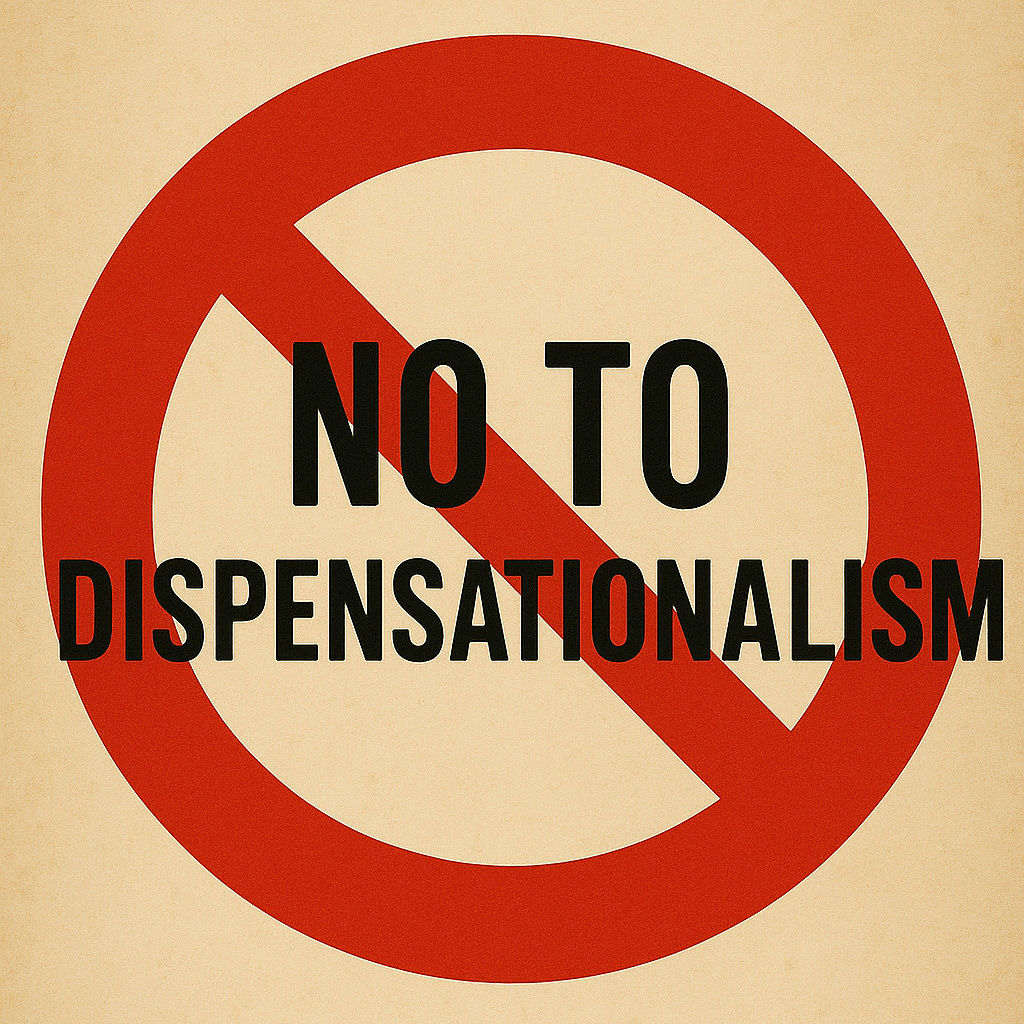The Truth About Darby, and Scofield
Dispensationalism is widely embraced in much of modern evangelicalism—particularly in America. It teaches that history is divided into distinct eras or “dispensations,” that Israel and the Church are separate peoples with different destinies, and that Christ will return in two stages: first in a secret rapture of the Church, then later in judgment. Yet this framework, so commonly taught in churches and Bible colleges today, is a modern theological invention. It does not come from the early Church, the Reformers, or even traditional Protestant theology. Instead, it traces back to two highly influential men—John Nelson Darby and Cyrus I. Scofield—whose personal backgrounds and institutional affiliations are often ignored.
John Nelson Darby and the Invention of the Rapture
John Nelson Darby (1800–1882), often called the father of Dispensationalism, was an Anglo-Irish clergyman and leader in the Plymouth Brethren movement. Though he began in the Church of Ireland (Anglican), Darby left the institutional church and began promoting a new interpretive system that would later become known as Dispensationalism. His teachings emphasized a sharp division between Israel and the Church, and most notably, introduced the concept of a pre-tribulation rapture—the idea that Christ would return secretly to snatch away the Church before a seven-year period of tribulation.
This rapture doctrine was virtually unknown in church history until Darby began teaching it in the 1830s. Even Dispensational scholars like John Walvoord and Charles Ryrie admit that the early Church did not hold this view. While some claim it can be found in isolated passages of earlier mystics, no major theological tradition or council taught this doctrine prior to Darby. It was a new idea.
Darby came from a privileged family with ties to the Anglo-Irish aristocracy. He was educated at Westminster School and Trinity College, Dublin. Though there’s no direct evidence he worked for the East India Company, his class background placed him in proximity to the imperial power structures of the British Empire. The East India Company, active during Darby’s lifetime, was not just a trading company but a vehicle for British colonization and religious control in India and beyond. The timing of Darby’s theology—emphasizing escape from the world rather than transformation of it—aligned conveniently with the empire’s goals of pacifying and diverting Christian energies away from public engagement and toward speculative prophecy.
Darby spent significant time in the United States, where his theology began influencing early evangelical circles, particularly among revivalists and Bible conference leaders. But it was Cyrus I. Scofield who would institutionalize and spread it to the masses.
The Scofield Reference Bible: A Trojan Horse
Cyrus Ingerson Scofield (1843–1921) was a lawyer-turned-preacher with no formal theological training. His past included a dubious military record, allegations of fraud, and the abandonment of his wife and children. Nevertheless, he was embraced by a network of well-connected supporters—including members of the New York financial elite—and given the platform to publish what would become one of the most influential Bibles of the 20th century: the Scofield Reference Bible (1909, revised 1917).
What made Scofield’s Bible revolutionary was not the biblical text itself, but the commentary notes inserted alongside Scripture, which promoted Dispensationalist interpretations as though they were part of the inspired Word. Millions of readers, many unaware of the distinction between the biblical text and Scofield’s opinions, absorbed these teachings as authoritative.
Scofield’s financial backing came from interests tied to Oxford University Press, who had no previous history of publishing theological works of this kind. Some of Scofield’s known associates were involved in Zionist movements and Wall Street finance—groups with political reasons to promote a theology that emphasized the return of Jews to Palestine and the separation of Church and Israel. Dispensationalism, therefore, became a tool not just of theology, but of foreign policy justification, especially in later American Christian Zionism.
Not Historic, Not Apostolic, Not Biblical
The Dispensational framework finds no support in the early Church. The apostles, Church Fathers, Reformers, and most Protestant confessions affirmed that God has always had one people (Romans 11), one plan of redemption (Ephesians 1), and one return of Christ (Acts 1:11). They interpreted prophecy through Christ-centered, covenantal lenses, not by dividing time into disconnected epochs with different “rules.”
Dispensationalism undermines this continuity. It teaches a coming third temple, reinstituted animal sacrifices, and a revived Levitical system—all of which directly contradict the New Testament’s declaration that Jesus is the once-for-all sacrifice (Hebrews 10:12) and the true temple (John 2:21).
It also leads to passive, escapist Christianity. When believers are taught that the world is doomed and that their only hope is to be “raptured out,” there is little incentive to engage in long-term discipleship, cultural transformation, or justice.
A Warning to the Church
Many faithful pastors and theologians—both in the Reformed and historic Protestant traditions—have openly called Dispensationalism a heresy, not out of malice, but because it distorts the Gospel, fractures God’s covenantal unity, and leads the Church into confusion and paralysis.
It is time to return to the historic faith. Jesus is not coming back for two peoples, or two plans. He is the fulfillment of all prophecy, the heir of David’s throne, and the King of a kingdom that is already advancing (Matthew 13:31–33). The Scriptures were not written to chart speculative timelines but to call the people of God into faithful obedience in every generation.
Let us lay aside the man-made systems of Darby and Scofield, and once again open the Word with Christ at the center—not Israel, not empire, and not fear.
